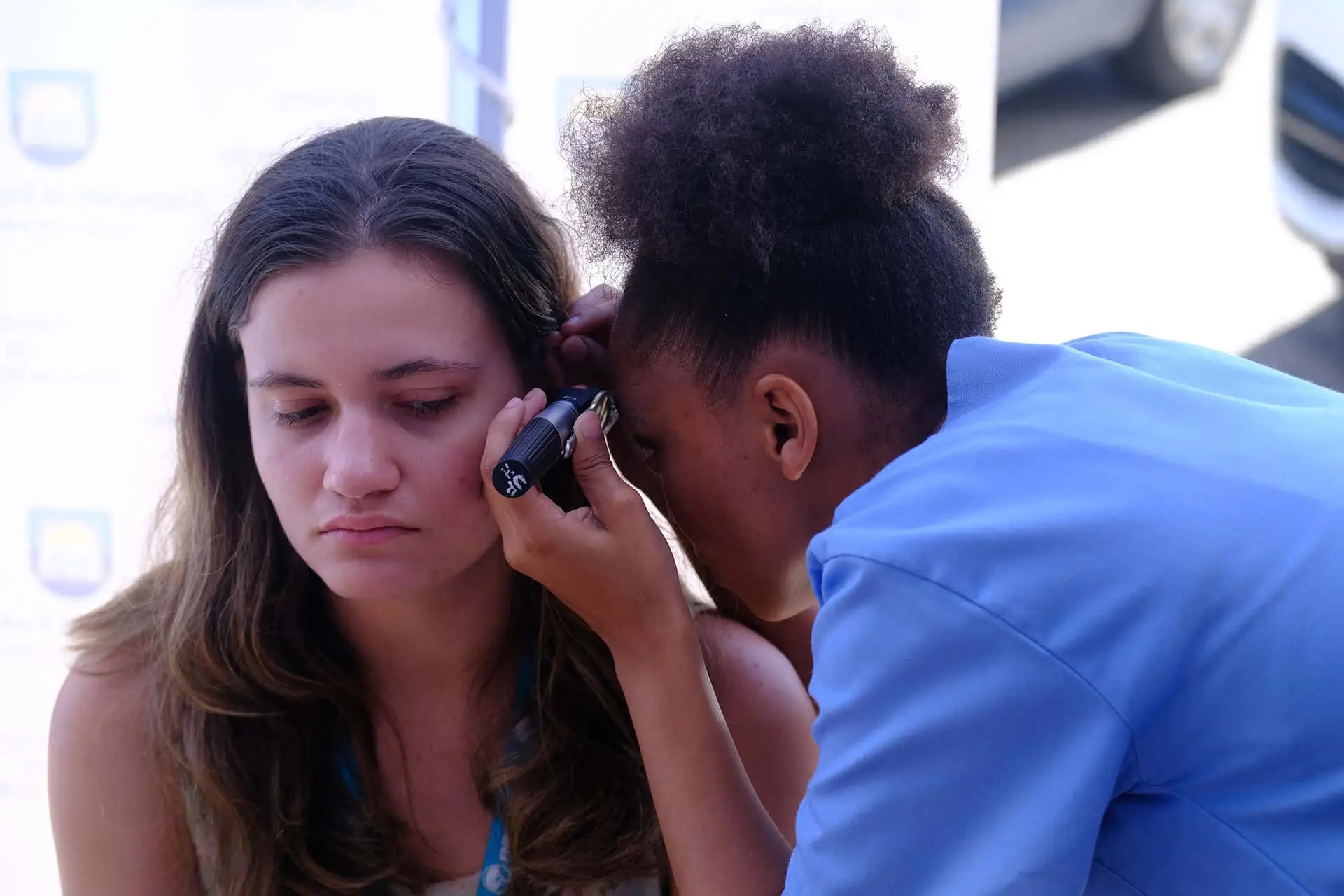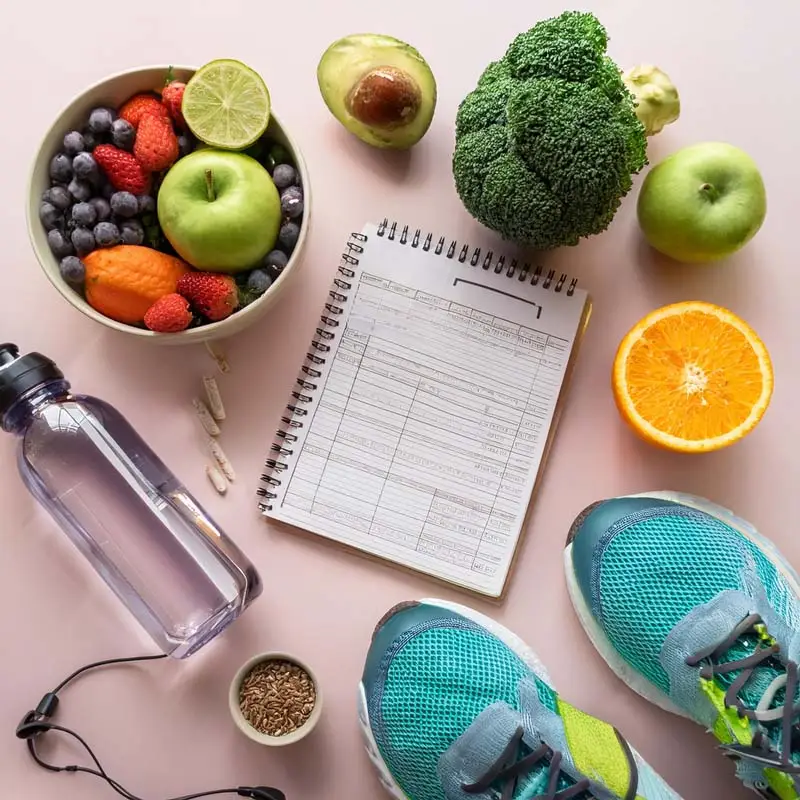Welcome to
Health & Wellness - Unlock Your Best Self
Introduction
Your Wellness Matters To Us
Our Healthcare Centre supports your journey to better health and well-being! We provide a full range of services, including preventative, promotive, curative, and rehabilitative care, tailored to meet the needs of our UFH community in both Alice and East London.
With a focus on personalised care, 90% of our services involve direct contact with patients. We offer a variety of student-centred programs, such as HIV Counselling and Testing (HCT), Primary Health Care, and access to vital health information to help you make informed choices about your lifestyle and well-being.
Guided by Department of Health regulations and aligned with Adolescent and Youth-Friendly Services, our care is designed with young people in mind—because 90% of our community is youth. Whether you need support, advice, or care, we’re here to help you thrive!

Health Care Unit
Addressing Your Health Concerns On Campus
- Minor Ailments Clinic
- Reproductive Health (Family planning)
- Tuberculosis (Daily clinic)
- Sexually transmitted infections (Daily Clinic)
- HIV Counselling and testing. (This service is offered to all clients daily during working hours.)
- Management of COVID-19
- Health education and counselling
Medical Staff
Chief Professional Nurse
Sr L Simandla
Campus: East London
Tel: +27 43 704 7616
E-mail: lsimandla@ufh.ac.za
Professional Nurse
Sr N Mzinyathi
Campus: East London
Tel: +27 43 704 7309
E-mail: nmzinyathi@ufh.ac.za
Professional Nurse
Sr H Mangondoza
Campus: East London
Tel: +27 43 704 7264
E-mail: hmangondoza@ufh.ac.za
Book a Medical Appointment
Book an Appointment
Appointment Date
Friday, 24th June 2024
Terms
Healthcare
Latest News
On the morning of 19 January 2026, a nation was...
Valued at nearly R1 trillion annually, South Africa’s township economy...
Three years after entering a landmark agreement to advance Local...
The University of Fort Hare (UFH) has entered a defining...
The University of Fort Hare is proud to announce the...
Following a highly successful SRC election that recorded the highest...
Emergency Procures and Contact details
After hour hospitals
Alice
Vitoria Hospital (casualty):
Address: Lovedale Street, Alice, Dikeni, 5700
Tel: +27 40 653 1141
East London
Frere Hospital:
Address: Amalinda Main Rd, Amalinda, East London, 5247
Tel: +27 43 709 2111
Day hospital:
Address: 20, 22 St James Rd, Southernwood, East London, 5201
Tel: +27 43 050 6666
Empilweni Gompo (casualty):
Address: Gompo, East London, 5209
Tel: +27 43 733 1289
Emergency numbers
Government Ambulance : Cellphone – 112 or landline – 10177
Flying Squad: 10111
Netcare 911: 082 911
ER24: 084 124
Stay Healthy, Be Well
Staying healthy while studying is essential for your success and overall well-being. When you prioritise your physical and mental health, you boost your ability to focus, retain information, and manage stress effectively.
A balanced diet, regular exercise, and adequate sleep fuel your brain and body, enabling you to tackle academic challenges with energy and resilience. Maintaining a healthy lifestyle also helps prevent burnout, keeping you motivated and in good spirits as you pursue your goals.
By taking care of yourself, you set the foundation for academic achievement and a happier and more fulfilling life.
Your Sexual Health Matters
Sexual health is a critical aspect of students’ overall well-being, impacting their physical, emotional, and social lives. Ensuring your practice safe, protected sex ensures that you don’t have additional anxiety during your student years and aren’t faced with the challenges of sexually transmitted infections, HIV and unplanned pregnancy.
Sexual health is more than just physical. Establishing boundaries and sticking to them is one of the best sexual health practices. It is essential to communicate with your partner to develop healthy and respectful relationships. Your voice is just as important as your partner’s, and you have the right to speak up and insist on healthy and wise sexual practices.
If you need assistance or advice, please visit our Health Care Clinics:
The Health Care Centre is located at the Elitheni dining hall in Alice
and 5 Cambridge Street, East London.
Our friendly, professional team will assist you with reproductive health (family planning), sexually transmitted infections, HIV counselling and testing and safe sex practices.
Don’t let sexual health issues affect your studies and university experience. Make safe and informed sexual health choices.
Prevent Substance Abuse
Avoiding substance addiction as a university student requires a proactive approach to managing stress, building healthy habits, and fostering a supportive environment.
Start by prioritising self-care through regular exercise, adequate sleep, and a balanced diet, which can help reduce stress and improve mental clarity.
Establish a strong network of friends who share similar values and can provide positive support during challenging times. Engage in campus activities, hobbies, or organisations that promote wellness and offer meaningful ways to spend your time. Stay informed about the risks of substance use and recognise the warning signs of addiction.
If you’re feeling overwhelmed, reach out to campus counselling services or trusted mentors for guidance. Developing healthy coping mechanisms and surrounding yourself with positive influences can significantly reduce the temptation to turn to substances as an escape.
Eat for Success
Eating healthily is not just about maintaining a certain weight; it’s about fueling your body with the nutrients it needs to function at its best.
A balanced diet rich in fruits, vegetables, whole grains, lean proteins, and healthy fats provides the energy and mental clarity to tackle daily challenges, strengthens the immune system to ward off illnesses, and reduces the risk of chronic diseases like heart disease, diabetes, and certain cancers.
Eating healthily as a student on a budget doesn’t have to mean surviving on instant noodles and fast food! With some planning, you can enjoy nutritious, tasty meals without breaking the bank.
If you can start cooking at home—it’s cheaper and lets you control what goes into your food. Ingredients like rice, pasta, lentils, oats, and vegetables are affordable and versatile, making them great for energy and convenience.
Preparing meals in advance is a game changer; it saves time, reduces food waste, and ensures you have healthy options ready. Don’t forget to explore creative recipes online that transform simple ingredients into something exciting.
Healthy eating as a student is all about being resourceful. With a little effort, you’ll feel better, study better, and maybe even discover a love for cooking!
Sleep Well
Getting a good night’s sleep is essential for overall health and academic performance. Sleep is not only for resting. It also improves memory, makes it easier to retain information and improves concentration and productivity. You can achieve this by following healthy sleep habits:
- Establish a regular bedtime and wake-up routine. This helps regulate the body’s internal clock, making it easier to fall asleep and wake refreshed.
- Create a sleep-conducive environment, such as keeping the room cool, dark, and quiet.
- Limit computer and mobile screen time before bed.
- Avoid caffeine, heavy meals, nicotine and excessive alcohol in the evening.
- To prepare your mind and body for rest, try relaxing activities like reading, deep breathing, listening to calming music, or meditating.
- Aim to get between 6 and 8 hours of quality sleep every night.
Prioritising sleep as part of a balanced lifestyle ensures students have the energy and focus needed to succeed in their studies and personal lives.
Calendar
Events & Announcements
Wellness Priorities
Staying Healthy - Your Gateway to Success
Staying healthy as a university student is crucial because it directly impacts your academic performance, mental well-being, and overall quality of life.
A healthy lifestyle supports better focus, energy, and resilience, enabling you to balance demanding coursework, social activities, and personal growth.
Here are some practical tips to help you stay healthy and keep you well and energised:
- Eat a Balanced Diet: Include fruits, vegetables, whole grains, lean proteins, and healthy fats in your meals.
- Stay hydrated: Drink plenty of water throughout the day.
- Limit sugar and processed foods: Reduce sugary drinks, snacks, and fast food.
- Stay Physically Active: Aim to exercise for at least 30 minutes daily. Move as much as possible: Take the stairs and walk during breaks.
- Take a break from studying: Find activities or hobbies you enjoy and do them regularly.
- Make mental health a priority: Seek help when needed. Reach out to the Student Counselling Unit if you feel overwhelmed.
- Get Enough Sleep: Go to bed and wake up at the same time every day, even on weekends.
- Take breaks: Regular breaks during work or study can prevent burnout.
- Don’t participate in harmful habits: Don’t smoke or use tobacco products, and limit alcohol consumption.
- Avoid excessive caffeine and highly caffeinated energy drinks: Too much can disrupt sleep and increase anxiety.
By prioritising your physical and mental health now, you establish habits that help you succeed in university and set the foundation for a fulfilling and sustainable future.

Wellness Facilities
Campus Fitness Facilities
Alice Campus
Tenis Court New Gymnasium Rugby Field Soccer Field Old Gymnasium Sports Centre Cricket Field
Bhisho Campus
Teaching is being taken more seriously and more and more higher education institutions across the nation.
East London Campus
Teaching is being taken more seriously and more and more higher education institutions across the nation.
